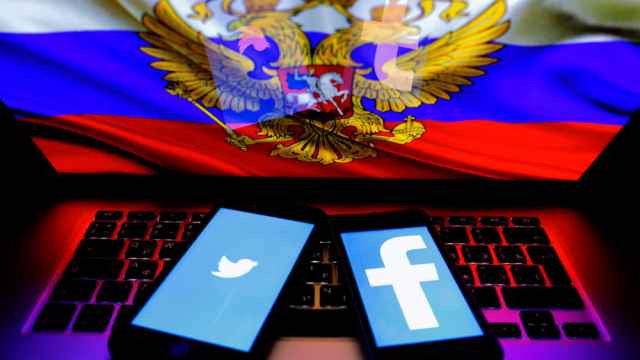Russian lawmakers on Friday submitted a bill that would force foreign technology companies to set up local offices or face punitive measures up to an outright ban.
Russia has in recent months stepped up efforts to impose more control on online platforms including Facebook, Twitter and YouTube, with President Vladimir Putin saying large tech companies have become so influential they are "competing" with sovereign states.
Restrictive measures have raised concerns among Kremlin critics, who fear the clampdown is aimed at silencing opposition voices.
Senior lawmaker Alexander Khinshtein said Friday that draft legislation forcing major foreign IT companies to establish Russian offices had been submitted to parliament.
"It concerns IT companies whose daily audience in Russia tops 500,000 people," Khinshtein, the head of the information policy, IT and communications committee at parliament's lower house State Duma, wrote on his Telegram channel.
"We expect that market players will treat this new measure with understanding."
If foreign technology companies refuse to comply, they will face penalties including a ban on advertising their services, a ban on collecting payments, or partial or full blockage in the country, Khinshtein said.
Another lawmaker, Anton Gorelkin, said he expected the legislation would make tech giants more attentive to Russian demands.
"With the appearance of necessary legislation cooperation should get better," Gorelkin, a member of the information policy committee at the State Duma, wrote on Telegram.
In January, Russian authorities accused foreign social media platforms of interfering in the country's domestic affairs by not deleting calls to protest in support of jailed opposition leader Alexei Navalny.
The state telecommunications watchdog in March imposed slowdowns on Twitter's services, accusing it of failing to remove content related to child pornography, drug use and calls for minors to commit suicide.
Twitter said at the time it was "deeply concerned by increased attempts to block and throttle online public conversation."
A Message from The Moscow Times:
Dear readers,
We are facing unprecedented challenges. Russia's Prosecutor General's Office has designated The Moscow Times as an "undesirable" organization, criminalizing our work and putting our staff at risk of prosecution. This follows our earlier unjust labeling as a "foreign agent."
These actions are direct attempts to silence independent journalism in Russia. The authorities claim our work "discredits the decisions of the Russian leadership." We see things differently: we strive to provide accurate, unbiased reporting on Russia.
We, the journalists of The Moscow Times, refuse to be silenced. But to continue our work, we need your help.
Your support, no matter how small, makes a world of difference. If you can, please support us monthly starting from just $2. It's quick to set up, and every contribution makes a significant impact.
By supporting The Moscow Times, you're defending open, independent journalism in the face of repression. Thank you for standing with us.
Remind me later.






